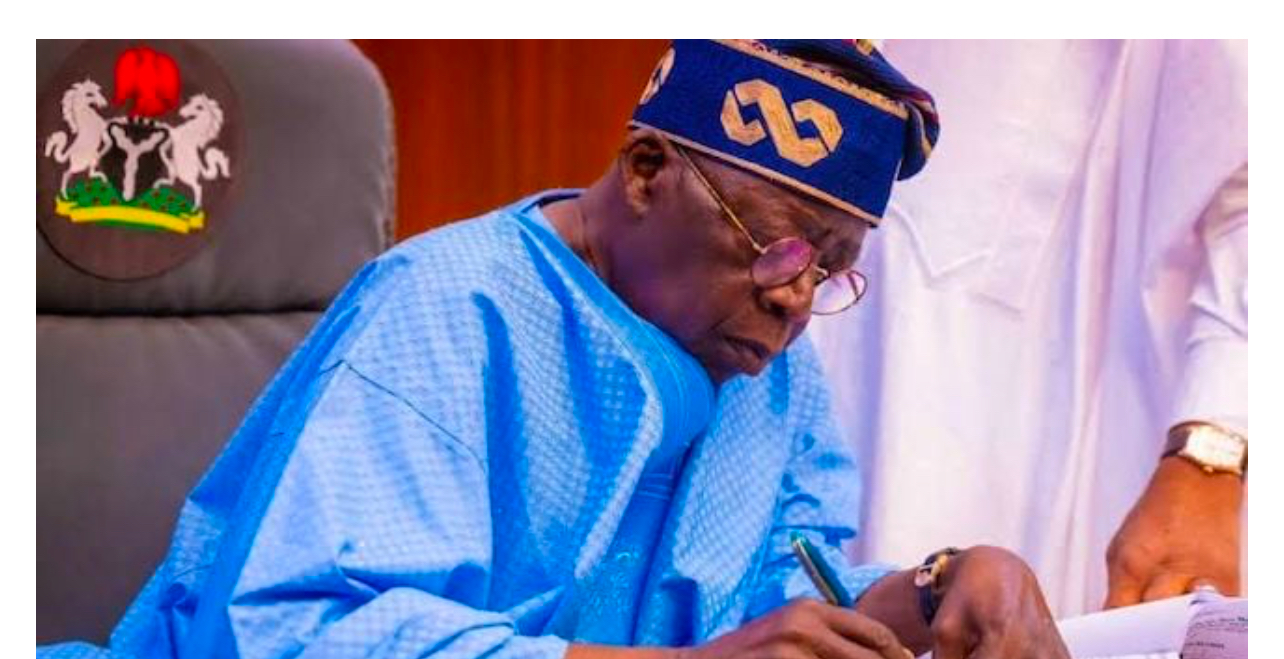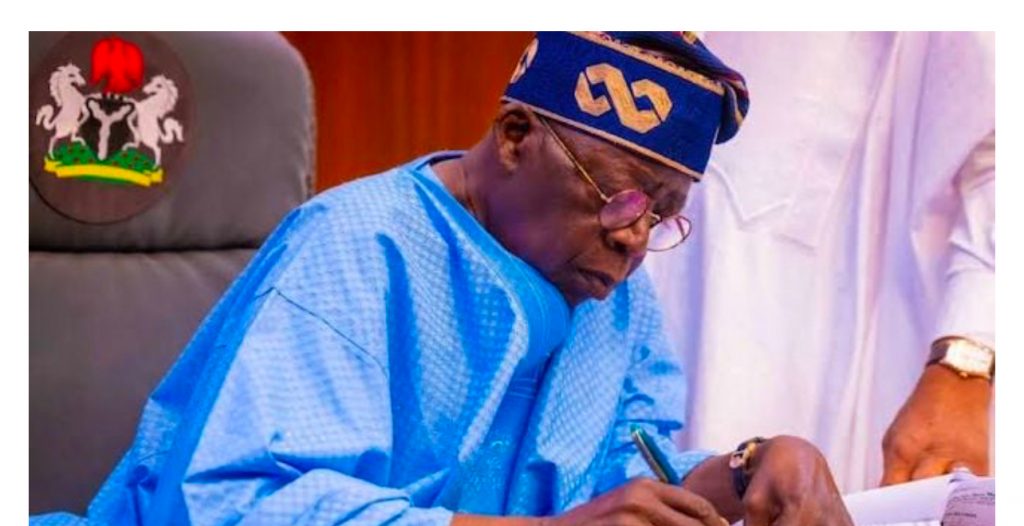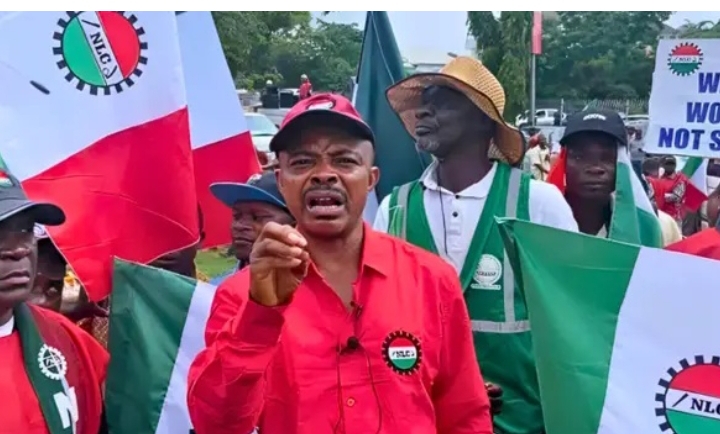 In a landmark development, the Federal Government and Organised Labour have agreed on a new national minimum wage of N70,000, a significant increase from the current N30,000.
In a landmark development, the Federal Government and Organised Labour have agreed on a new national minimum wage of N70,000, a significant increase from the current N30,000.
The newly agreed minimum wage was reached on Thursday when President Bola Ahmed Tinubu met with the leadership of the organized Labour, led by presidents of the Nigerian Labour Congress (NLC) and the Trade Union Congress (TUC) at the State House, Abuja, the second meeting within a week.
Before reaching the agreement, the two sides, being government and the organised private sector on one side, and the organised Labour on the other, had held a long-drawn series of negotiations, starting with the Constitution of the Bukar Goni-Aji-led Tripartite Committee on New National Minimum Wage.
While the negotiations were ongoing, the employers’ side (federal/sub-national governments/OPS) had offered varying amounts, starting with ₦48,000 to ₦54,000 to ₦57,000 to ₦60,000 to ₦62,000 and finally to the agreed ₦70,000.
On the side of Labour, the leadership of the workers started negotiation with a demand for ₦615,000 then lowered it further to ₦500,000 to ₦497,000 to ₦250,000 and finally agreed to ₦70,000.
However, disclosing details of the meeting and the final agreement to journalists at the State House, Abuja, the Minister of Information and National Orientation, Mohammed Idris, described the conclusion of the meeting as “a happy day for Nigeria”.
Read Also: NLC urges FG to pay SSANU, NASU withheld four-month salaries
According to Idris, besides the agreement to the ₦70,000 minimum wage, the government has also agreed to addressing the disagreement over the withheld salaries of university workers’ unions; the Senior Staff Association of Nigerian Universities (SSANU) and the Non-Academic Staff Union of Universities (NASU).
The government has also pledged massive investments in infrastructure and renewable energy, including the acquisition of more CNG buses to enhance Nigeria’s transition to cleaner energy, as well as expressing commitment to ensuring local government autonomy.
“Today’s a happy day for Nigeria. You’ll recall that last week we had a meeting here and the organized private sector. The sub-nationals have also held their various meetings with Mr. President following the submission of the tripartite agreement to Mr. President. Labour came last week, they had meetings with Mr. President, they asked for adjournment for a week to go and consult further. They did those consultations, they have come back today and we have met with Mr. President.
“We’re happy to announce today that both the federal government and organized Labour have agreed on an increase on the N62,000 minimum wage. The new national minimum wage that we expect Mr President to submit to the National Assembly for legislation is N70,000. But that is not all. There is also a boost, like Mr. President has assured, in ensuring that massive investment is going to be made in the area of infrastructure.
“There is also a deepening of the investment of the federal government in renewable energy. More money is going to go into the acquisition of more CNG buses, Nigeria is going to be more CNG compliant, according to the President. We’re moving in this transition to renewable and all other things that Mr. President has assured Labour; the issue of SSANU and NASU is also going to be looked at.
“We are happy, we are very thankful of the role that the Organised Labour has done today. They recognised the federal government’s role in ensuring that we have the local government autonomy, in also ensuring that both the Organised Labour and the government are on the same page today. They have seen the magnanimity of the President and today the leadership of Labour said they didn’t come here for negotiation, not at all. They came here in their deep sense of patriotism to ensure that Nigeria remains united, Nigeria becomes more prosperous.
“It is in that spirit that they are in agreement with what the federal government has done today. We want to thank Labour for their patriotism. We also want to thank Mr President, the federal government, the sub-nationals and organized private sector for going through this painstaking effort, by also ensuring that at the end of the day Nigeria is the winner for it all”, Idris said.
Corroborating the Information Minister’s brief, the Minister of State for Labour and Employment, Nkeiruka Onyejeocha, announced that organized Labour has agreed to the new minimum wage of N70,000 after the meeting with President Tinubu.
The agreement comes after labour leaders requested a one-week extension to consult with their members, following their initial meeting with the President last week.
According to Onyejeocha, the President adopted a fatherly approach, emphasizing the need for a review of the minimum wage policy every three years, rather than the current five-year cycle.
She further hinted that the President also directed the Minister of Finance and Coordinating Minister of the Economy, Wale Edun, and the Minister of Budget and Economic Planning, Abubakar Bagudu, to review the issue of SSANU and NASU payments, with a waiver to pay the outstanding amounts.
She also said the President reassured Nigerians of his commitment to the country’s economic recovery and the welfare of citizens.
President of the NLC, Joe Ajaero, said the Organised Labour agreed to the new national minimum wage of N70,000 because of the President’s willingness to review wages every three years, rather than the usual five-year cycle.
While acknowledging the economic situation, Ajaero expressed mixed feelings about the agreement but noted that the NLC will take the proposal back to their constituency for further discussion and buy-in.
The agreement marks a significant step forward in the ongoing negotiations between the government and labour leaders, with a promise of future reviews and incentives like the CNG scheme to alleviate the burden on Nigerian workers.
“Well, we’re here last week and we’re here now, what they have announced in terms of the amount of N70,000 happened to be where we are now for now, but the good thing about it is that we will not wait for another five years to come and review, rather than settling on a figure that we’ll wait for five years, it’s like we’ll have to now negotiate even two times within five years, with a view to going up. That is one of the reasons why we decided to reach where we are today, because of the proviso that we can review in the next three years.
“We came with other issues in the basket, like the issue of SSANU, NASU and others, especially with the affront by the Commissioner of Police of FCT, we brought it to Mr. President, and talked on the need for that matter to be addressed and magnanimously, he asked the agencies concerned to work out the modalities for the payment of those workers in the universities.
“So far, that’s where we are. Although he promised some incentives like the CNG, which will lessen the burden that the Nigerian workers are passing through, but you can see that we are taking in this with mixed feelings because of the situation of the economy, we will have to move ahead despite the situation and the negotiation can linger. Coming from 62 to 70 and then with the promise that we’ll come back soon to negotiate it.
“We’re taking it back to our constituency to see how we can get a buy-in. So that’s what has transpired this afternoon”, he said.
The TUC President, Festus Osifo, who also spoke to journalists, expressed satisfaction with President Tinubu’s intervention, especially with the proviso for review every three years.
He also commended the President’s promise to address the issues of SSANU and NASU, and emphasized the need for swift passage of the minimum wage bill by the National Assembly and urged that the student loan scheme be targeted at those who need it most, not just the children of the rich.
Post Views: 1,110


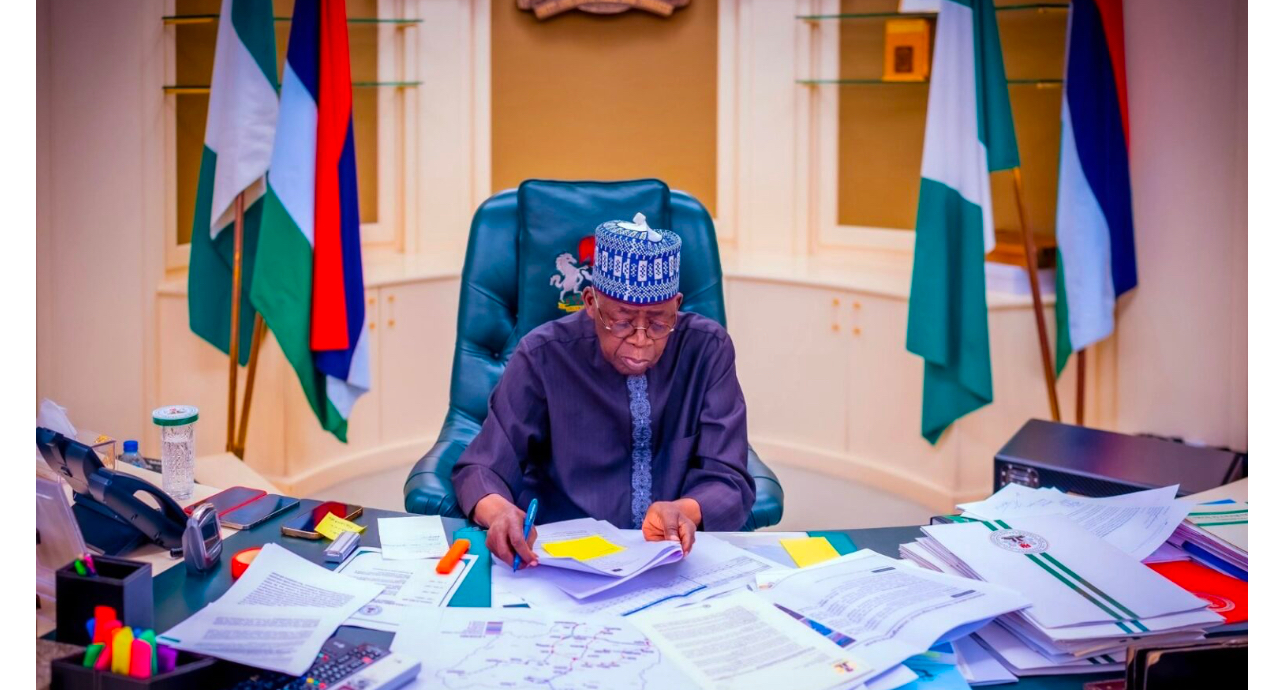
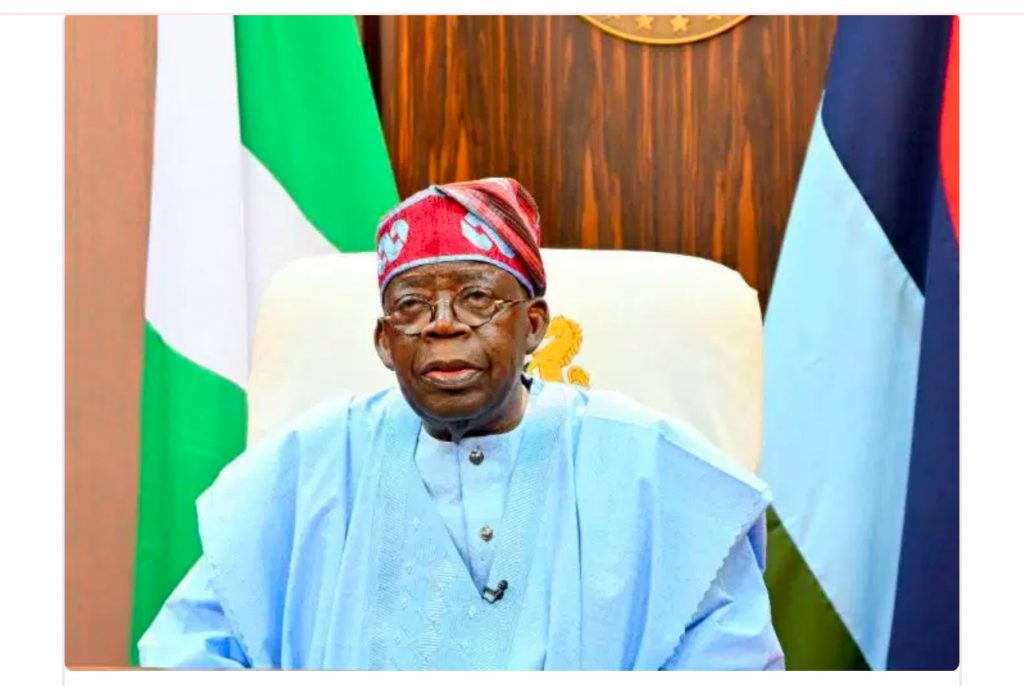 Disturbed by the state of training institutions for the Nigeria Police Force (NPF), Nigeria Security and Civil Defence Corps (NSCDC) and other internal security agencies, President Bola Tinubu has declared emergency on the facilities.
Disturbed by the state of training institutions for the Nigeria Police Force (NPF), Nigeria Security and Civil Defence Corps (NSCDC) and other internal security agencies, President Bola Tinubu has declared emergency on the facilities. 
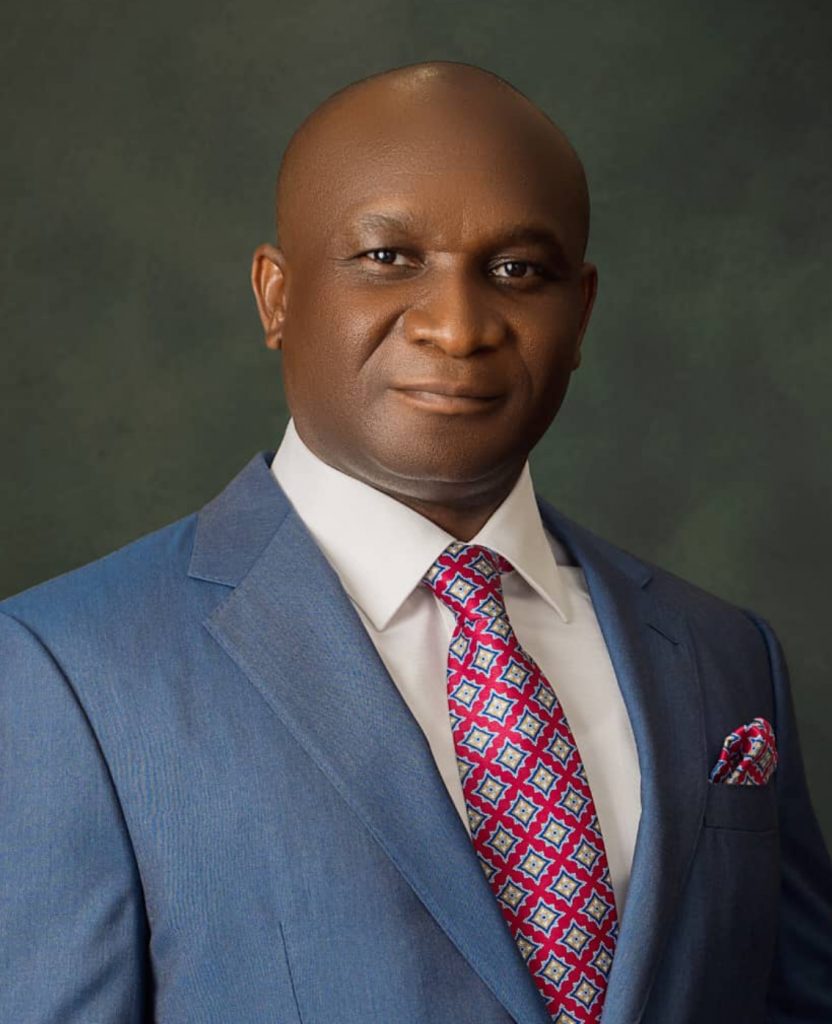 The Niger Delta Development Commission, NDDC, is hosting a two-day strategic meeting with commissioners, permanent secretaries, and directors of agriculture, fisheries & livestock in the nine Niger Delta states.
The Niger Delta Development Commission, NDDC, is hosting a two-day strategic meeting with commissioners, permanent secretaries, and directors of agriculture, fisheries & livestock in the nine Niger Delta states.